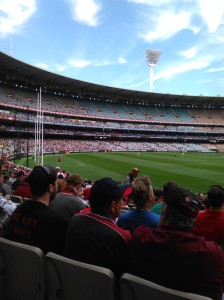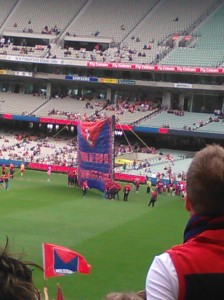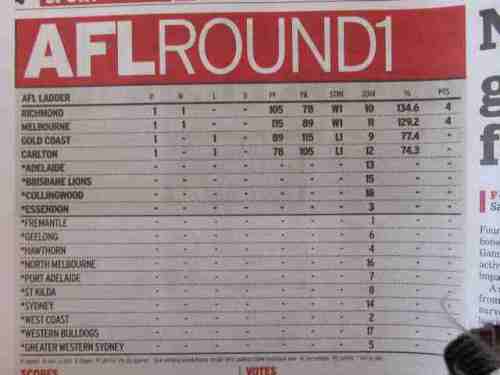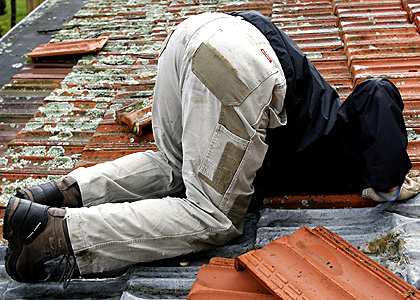It would seem that there is no longer a Melbourne Debating Society. I’ve found the Debaters Association of Victoria Inc. but no sign of a Melbourne Debating Society. Which is rather a shame, as it was one of the earliest civic and ‘intellectual’ societies of Melbourne.
Edmund Finn writing as ‘Garryowen’ tells us that the debating society commenced in 1841 with a Managerial Board consisting of President: Hon. James Erskine Murray; Vice-Presidents: Rev. James Forbes and Surgeon A. F. Greeves; Chairman: Mr J.G. Foxton; Committee: Messrs James Boyle, G.A. Gilbert, R. V. Innes, D.W. O’Nial and J. J. Peers; and Treasurers Messrs. Thomas B. Darling and E. C. Dunn. The Herald of 12 October 1841 reports its first meeting. It appears to have met weekly, on a Wednesday evening, although sometimes on a Friday.
In his book The Capacity to Judge: Public Opinion and Deliberative Democracy in Upper Canada 1791-1854, Jeffrey McNairn highlights the importance of voluntary organizations in the development of “democratic sociability” i.e. that it was possible for men to deliberate in public, using argument. In particular he highlights literary and debating societies as a site for this development. So perhaps it just wasn’t that there wasn’t anything on in Port Phillip on a Wednesday night….
Garryowen continues:
This Society attracted to its ranks most of the talent of the town. Weekly meetings were held at the Scots’ Schoolroom on the Eastern hill of Collins Street, and considerable debating power was rapidly developed. It was not a mere ordinary school-boy exhibition of vapid declamation and puerile rhodomontade, but an intellectual gathering, where questions of interest to the community were good-humouredly, intelligently, and patiently discussed.
Rhodomontade??!! Now there’s a word to conjure with!!! Merriam-Webster tells me that it means “bragging speech, vain boasting or bluster”. Well, there was certainly scope for some rhodomontade at the Melbourne Debating Society because here are the topics that I’ve found in the Port Phillip Herald so far
- Topic in October: “The motives which actuated Brutus and other conspirators in the assassination of Caesar”. The meeting came to the conclusion that “the death of Caesar resulted from patriotic motives”
- Next topic “Whether America or any other nation will ultimately supplant Great Britain in the scale of nations”. Conclusion- no, Britain reigns supreme
- November topic “Whether India has been befitted by British Connexion?” No clear cut result here – the meeting adjourned after a long discussion.
- The November topic“Was the conduct of Elizabeth towards Mary, Queen of Scots, justifiable?” provoked a “long an animated discussion” but the meeting was all but unanimous for the negative. I suspect that the strong presence of Scots emigrants held sway here- there’s a heavy preponderance of Scots on the committee (President, and both Vice-Presidents at least), and the meeting is being held in the Scots school room
- December: “Whether the character of King Charles the First is entitled to respect? The question was decided in the affirmative.
- January “Is the practice of dueling justifiable?” also decided in the affirmative
- February “Are literary and scientific pursuits suited to the female character?”, again decided in the affirmative
- “Is Phenology founded on reason and the evidence of acknowledged facts?”.
At the stage I’m up to in my reading, the Phrenology debate in late February was postponed because of the imprisonment for contempt of court of one of the members of the society, the young Port Phillip Gazette editor George Arden, on the orders of Judge Willis, the ‘real’ Resident Judge of Port Phillip. The night was spent discussing the imprisonment, and a petition and address signed to George Arden (although from what I can find at the moment, not actually made public)
Here the Melbourne Debating Society spilled over into Politics with a capital ‘p’. As McNairn pointed out in relation to the Canadian debating societies:
P. 90 “The political significance of debating societies thus lay more in their guiding principles and in the skills and sociability they fostered than in the content of their meetings. Since most brought together men from various religious and partisan affiliations, denominational and political controversy was shunned and, in most cases, prohibited. Societies provided a haven from the less-controlled debate of public politics, but as training grounds their political role was undiminished.”
The Melbourne Debating Society had been grappling with the issue of religious and partisan affiliation from its commencement.Within the first months, there was discussion over whether rules should be promulgated for the quoting of scripture, and one of the December meetings was turned over to a discussion of ‘the expediency of countenancing the discussion of polemical and political subjects by the society’. At its 31 December meeting (no New Years Eve frolics here!) it was decided to prohibit religious and political discussions.
Am I surprised by the topics chosen? It seems that they draw on a shared knowledge of British and classical history (a knowledge that could by no means be assumed today) and an awareness of Britain’s wider empire- at least in the United States and India. It’s important to remember that these debates are conducted within the politics of their time: the 1857 Sepoy rebellion in India had not occurred; the United States at that time included the original 13 states and the states ceded through the Louisiana Purchase, but the western 1/3 of what we now know as the United States had not been annexed at this stage. Australia hadn’t seen the last of dueling: Sir Thomas Mitchell and the politician Stuart Donaldson fought a fuel over allegations of extravagance in the Surveyor-General’s department in September 1851!! (and I thought politics today was all theatre!)
I was fascinated by the “female question” debate, which was reported in some detail on 8th February 1842. It’s very hard to find reports of public activities of women in Port Phillip in the 1840s, but on 30th November, the Debating Society decided that in future ladies will be admitted, “their fair presence and patronage being secured, victory is certain.” They were certainly present for the Charles the First debate, which was “graced by the presence of ladies”. However, there is no further mention of a female audience in later reports, which seems odd given that the February debate centred on “Whether literary and scientific pursuits are suited to the female character?”. Certainly, if they were there, they didn’t contribute to the debate- only men ever spoke.

The Hon. President James Erskine Murray opened the debate in the affirmative by enumerating various females of literary distinction, and asserting that they were rendered “more sensible and conscientious in the discharge of their domestic duties” than women of limited capacity and neglected education- “in short, that it was easier to direct the intelligent than the ignorant”. The respondent, Mr Osbourne, contended that woman was not by nature intended mentally or physically to sustain the labour of acquiring that superior extent of knowledge, and that it would interfere with her devotion to domestic affairs. Women would no longer be fascinated by respected individuals of the other sex “upon whose opinions she rests with confidence as the safest code of general direction”- instead of being fascinated, they would actually take a part in literary and scientific discussion! Thoroughly modern SNAG as he was, however, Mr Osbourne commended the more beneficial system of education that has become prevalent in Britain, America and Europe where “all the pretty nothings which at one time formed the almost entire course of female education” had been replaced with general principles of science and useful literary studies. The Hon James Erskine Murray, in reply, decried this education that made women “in many instances as only fit to hearken to the insipid babblings of young men in preference to intelligence and rational conversation” He instanced Mrs Somerville, Lady Jane Grey, Mrs Clarke, Johanna Billie, Edgworth and others. Mr Smith, speaking for the negative, accounted for the difference in ability between men and women by a description of the respective skulls of the two sexes. Mr Stafford, for the affirmative, brandished Mary Stewart, Elizabeth, Catherine II and the Countess of Pembroke to shew that the sex gave evidence of genius , which no system of exclusion could obscure.
The warmest applause of the evening went to Mr Smith who “alluded to the domestic happiness to be experience by a Benedict, who, returning to dinner after the duties of the day, instead of finding the rump steak and oyster sauce &c. smoking a welcome to his appetite, finds his lady so deeply immersed in Euclid, or buried in the mysteries of Algebra, as to let him cater for himself.”
And so the evening ended. As the Herald concluded:
The subject of debate, as far as opinion went, had, we imagine, been decided in the breast of every one ere the discussion commenced. The question was too loosely and generally given for an advantageous discussion, and was decided in the affirmative.
So there you have it.
References:
Finn, Edmund The chronicles of early Melbourne, 1835 to 1852 : historical, anecdotal and personal / by “Garryowen”, Melbourne, Fergusson and Mitchell, 1888
McNairn, Jeffrey, The Capacity to Judge: Public Opinion and Deliberative Democracy in Upper Canada 1791-1854, Toronto, University of Toronto Press, 2000.


















